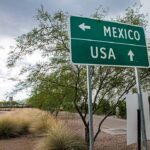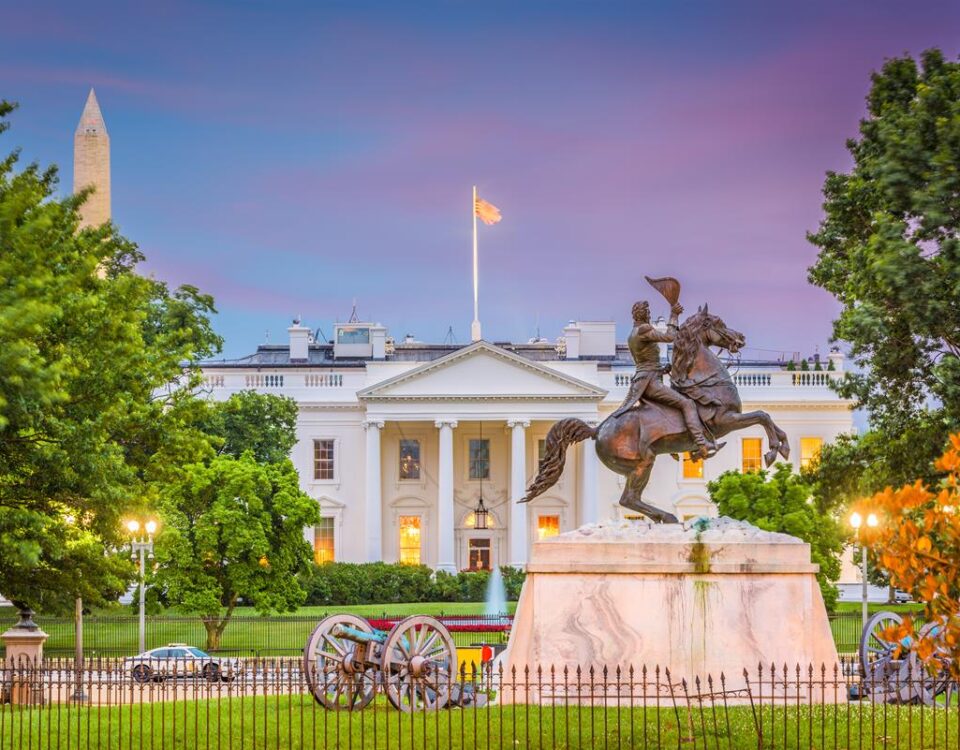
Examining Constitutional Limits of National Emergencies in Border Control Policy
January 22, 2025
Keke Palmer, Issa Rae & SZA VERSUS the wings of DEATH 💀
January 23, 2025President Andrew Jackson vs. Donald Trump
Although separated by nearly two centuries, Andrew Jackson and Donald Trump share a striking number of similarities in terms of their political style, personal demeanor, and how they reshaped American politics. Both presidents leveraged populist rhetoric to gain widespread support, challenged the established political norms, and stirred intense controversy during their time in office. Despite the vast differences in historical context, Jackson and Trump share common traits that align them as populist figures in American political history.
Perhaps the most significant similarity between Jackson and Trump lies in their ability to speak directly to the common people and present themselves as champions of the “average” American against the elite establishment. Jackson, known as “Old Hickory,” built his political identity on his image as a man of the people, often portraying himself as the representative of ordinary white citizens, particularly farmers and frontiersmen. His appeal was rooted in his outsider status; he was a military hero not part of the traditional political class, much like Trump, a businessman and reality TV star who lacked political experience before running for president.
Similarly, Trump rose to prominence by railing against Washington insiders, using slogans like “Drain the Swamp” to signal his commitment to upending the political establishment. Like Jackson, he crafted an image of himself as a fighter for the people, presenting himself as someone who would dismantle the entrenched powers in Washington and restore power to ordinary citizens. Both men used inflammatory rhetoric to rally their base, presenting themselves as outsiders who would confront the so-called elites, which gave them a potent, populist appeal.
Jackson and Trump were both deeply critical of the political elite and their perceived influence over American institutions. Jackson famously fought against the Bank of the United States, which he believed concentrated too much financial power in the hands of a privileged few, accusing it of corruption and favoring the wealthy. His battle with the bank was a cornerstone of his presidency and cemented his image as a champion of the common man.
Trump, too, positioned himself as a champion of the working class by confronting institutions like the media, political elites, and large corporations. He frequently criticized the so-called “deep state” and positioned himself as an adversary to the political establishment, which he claimed was responsible for the stagnation and decline of the American working class. Trump’s rhetoric against “fake news” and the mainstream media mirrored Jackson’s distrust of the elites who controlled the economy and the government.
Both presidents were known for their brash, unfiltered rhetoric, which earned them both admiration and widespread criticism. Jackson was notorious for his combative personality, and his actions often defied the norms of presidential decorum. His use of patronage to reward loyal supporters, his aggressive foreign policy, and his harsh treatment of Native Americans (culminating in the Trail of Tears) made him a deeply polarizing figure.
Trump, similarly, was known for his volatile speech. He used social media, particularly Twitter and Truth Social, to bypass traditional media filters and speak directly to his followers. His inflammatory comments, especially on issues like immigration, race, and foreign policy, kept him in constant media focus and polarized the nation. Like Jackson, Trump didn’t shy away from using aggressive language and confrontational tactics to assert his leadership, often disparaging opponents, the media, and anyone he saw as a threat.
Both presidents faced accusations of undermining democratic norms. Jackson’s use of executive power to implement policies like the Indian Removal Act and his infamous “spoils system” the practice of giving government positions to political supporters raised concerns about his disregard for checks and balances. His presidency marked the rise of strong executive authority, which some viewed as a dangerous concentration of power.
Trump’s presidency similarly raised alarms about his disregard for democratic norms and the separation of powers. His efforts to challenge the results of the 2020 election, culminating in the January 6 Capitol riot, were seen by many as a direct threat to American democracy. Trump’s frequent attacks on the judiciary, the press, and even his advisers mirrored Jackson’s confrontations with institutions that he felt stood in his way.
While Andrew Jackson and Donald Trump governed in vastly different historical periods, their presidencies exhibit remarkable similarities, especially in their populist appeal, their challenges to elite power, and their controversial, sometimes authoritarian leadership styles. Both presidents were willing to break from political norms, often using divisive rhetoric to strengthen their hold on power and influence American society. Their legacies continue to provoke debate about the nature of leadership, democracy, and the relationship between the people and their government.
C. Rich
CRich@AmericaSpeaksInk.com

C. Rich is the voice behind America Speaks Ink, home to the America First Movement. As an author, poet, freelance ghostwriter, and blogger, C. Rich brings a “baked-in” perspective shaped by growing up on the streets and beaches of South Florida in the 1970s-1980s and brings a quintessential Generation-X point of view.
Rich’s writing journey began in 2008 with coverage of the Casey Anthony trial and has since evolved into a wide-ranging exploration of politics, culture, and the issues that define our times. Follow C. Rich’s writing odyssey here at America Speaks Ink and on Amazon with a multi-book series on Donald Trump called “Trump Era: The MAGA Files” and many other books and subjects C. Rich is known to cover.
“America Speaks Ink is a Google News approved source for Opinion”





